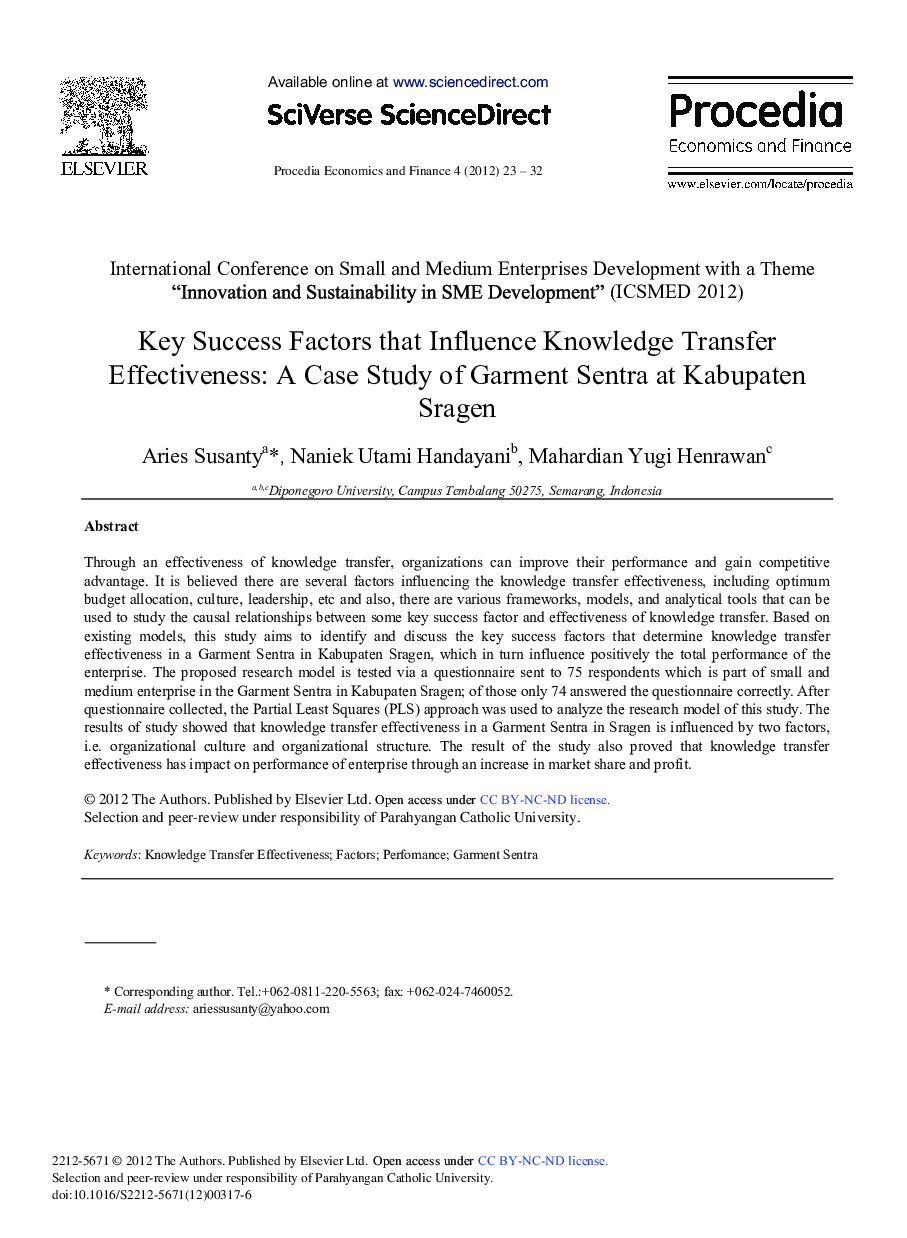| Article ID | Journal | Published Year | Pages | File Type |
|---|---|---|---|---|
| 982005 | Procedia Economics and Finance | 2012 | 10 Pages |
Through an effectiveness of knowledge transfer, organizations can improve their performance and gain competitive advantage. It is believed there are several factors influencing the knowledge transfer effectiveness, including optimum budget allocation, culture, leadership, etc and also, there are various frameworks, models, and analytical tools that can be used to study the causal relationships between some key success factor and effectiveness of knowledge transfer. Based on existing models, this study aims to identify and discuss the key success factors that determine knowledge transfer effectiveness in a Garment Sentra in Kabupaten Sragen, which in turn influence positively the total performance of the enterprise. The proposed research model is tested via a questionnaire sent to 75 respondents which is part of small and medium enterprise in the Garment Sentra in Kabupaten Sragen; of those only 74 answered the questionnaire correctly. After questionnaire collected, the Partial Least Squares (PLS) approach was used to analyze the research model of this study. The results of study showed that knowledge transfer effectiveness in a Garment Sentra in Sragen is influenced by two factors, i.e. organizational culture and organizational structure. The result of the study also proved that knowledge transfer effectiveness has impact on performance of enterprise through an increase in market share and profit.
